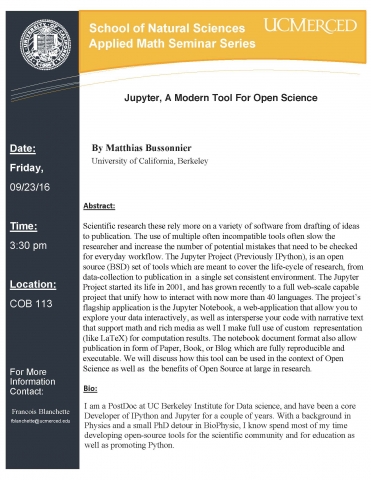Matthias Bussonnier, University of California, Berkeley
Abstract:
Scientific research these rely more on a variety of software from drafting of ideas to publication. The use of multiple often incompatible tools often slow the researcher and increase the number of potential mistakes that need to be checked for everyday workflow. The Jupyter Project (Previously IPython), is an open source (BSD) set of tools which are meant to cover the life-cycle of research, from data-collection to publication in a single set consistent environment. The Jupyter Project started its life in 2001, and has grown recently to a full web-scale capable project that unify how to interact with now more than 40 languages. The project’s flagship application is the Jupyter Notebook, a web-application that allow you to explore your data interactively, as well as intersperse your code with narrative text that support math and rich media as well I make full use of custom representation (like LaTeX) for computation results. The notebook document format also allow publication in form of Paper, Book, or Blog which are fully reproducible and executable. We will discuss how this tool can be used in the context of Open Science as well as the benefits of Open Source at large in research.




